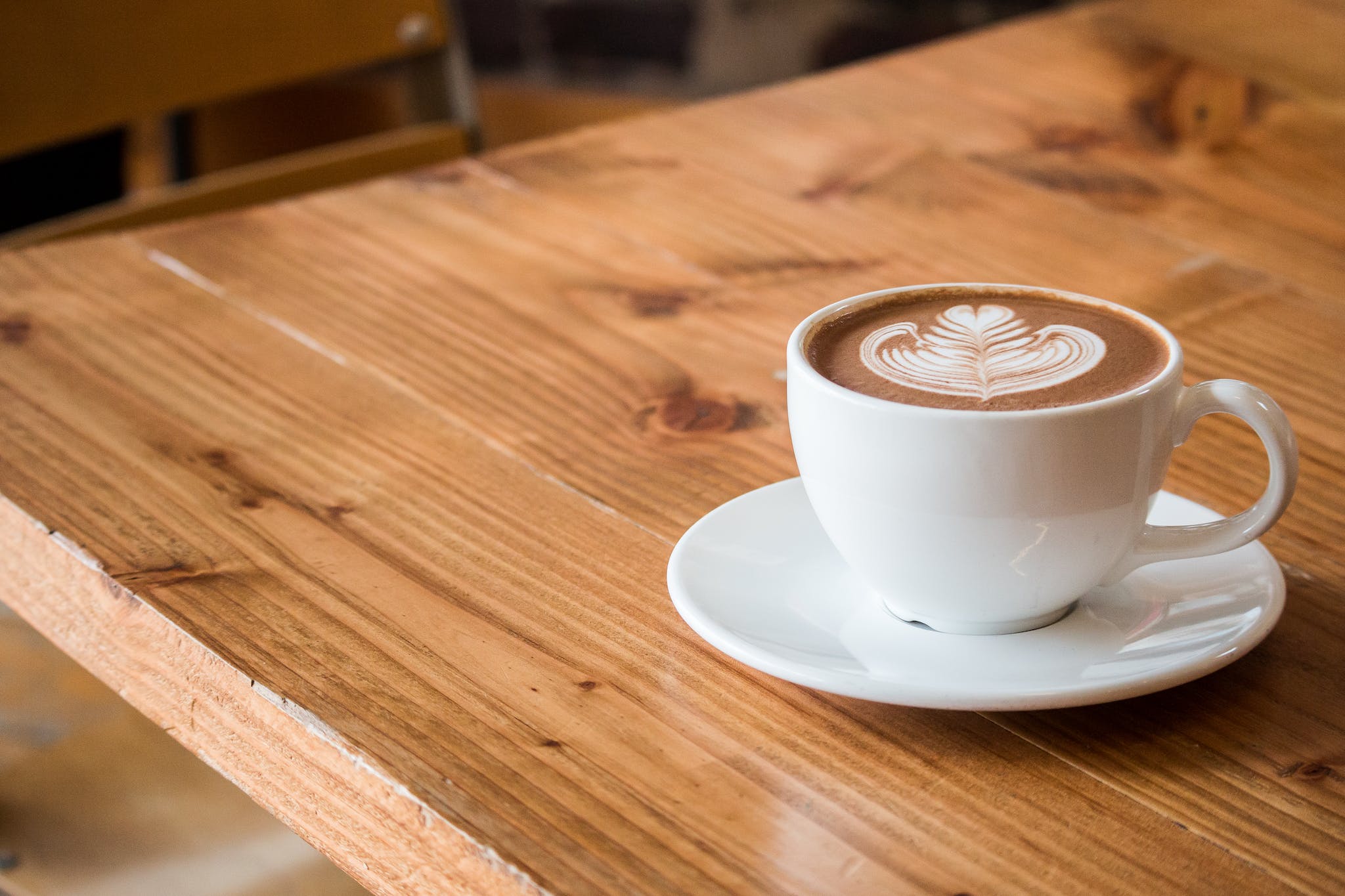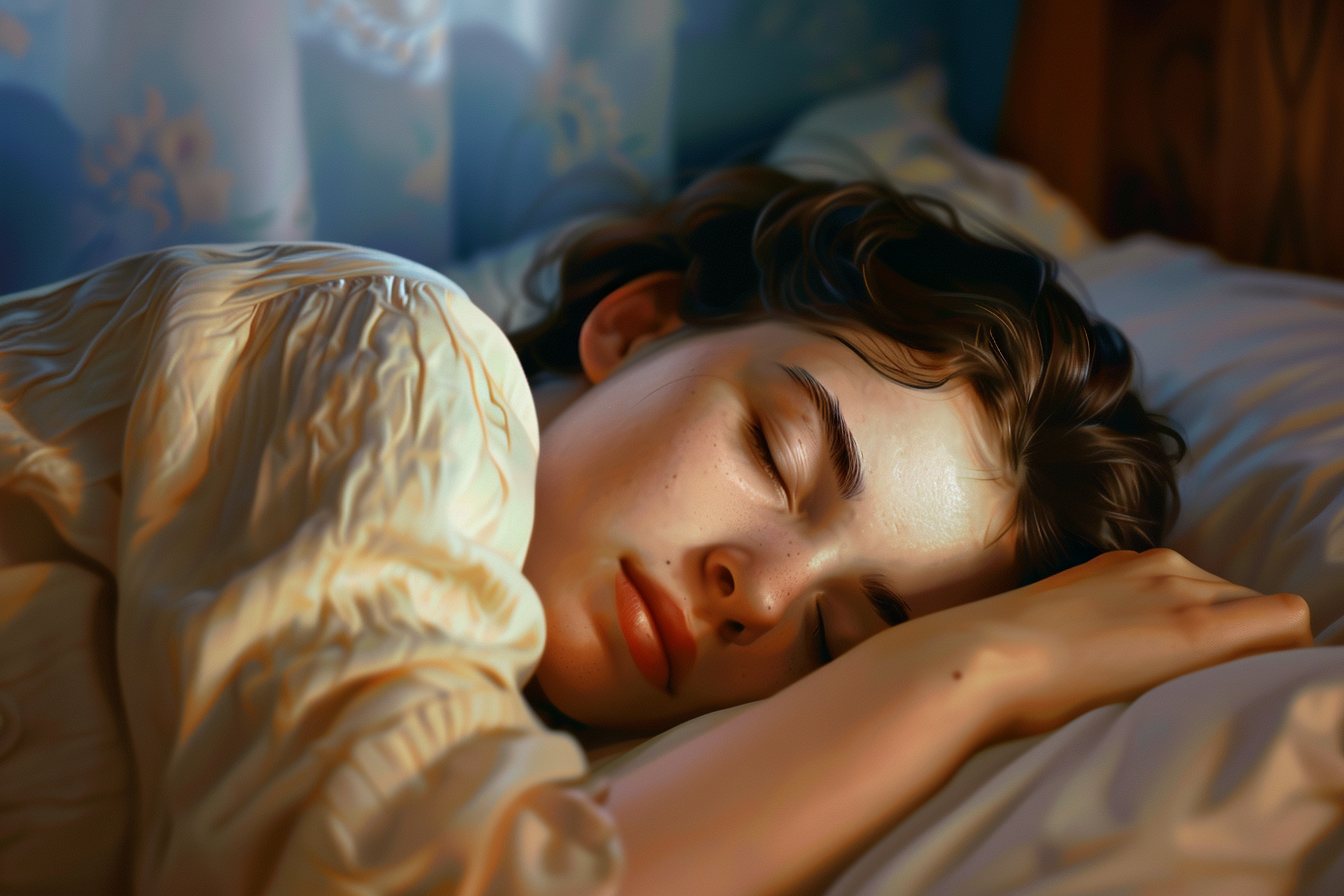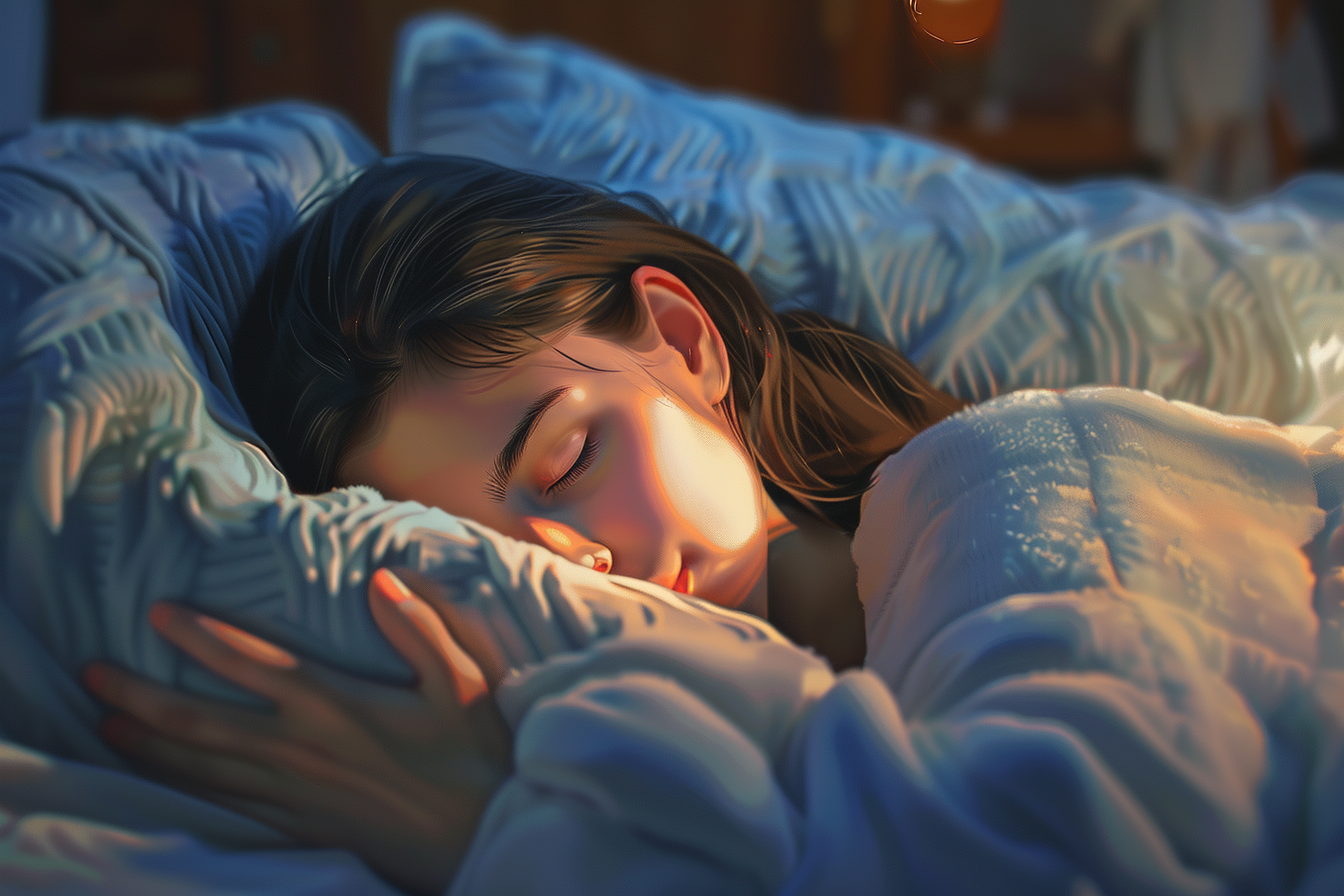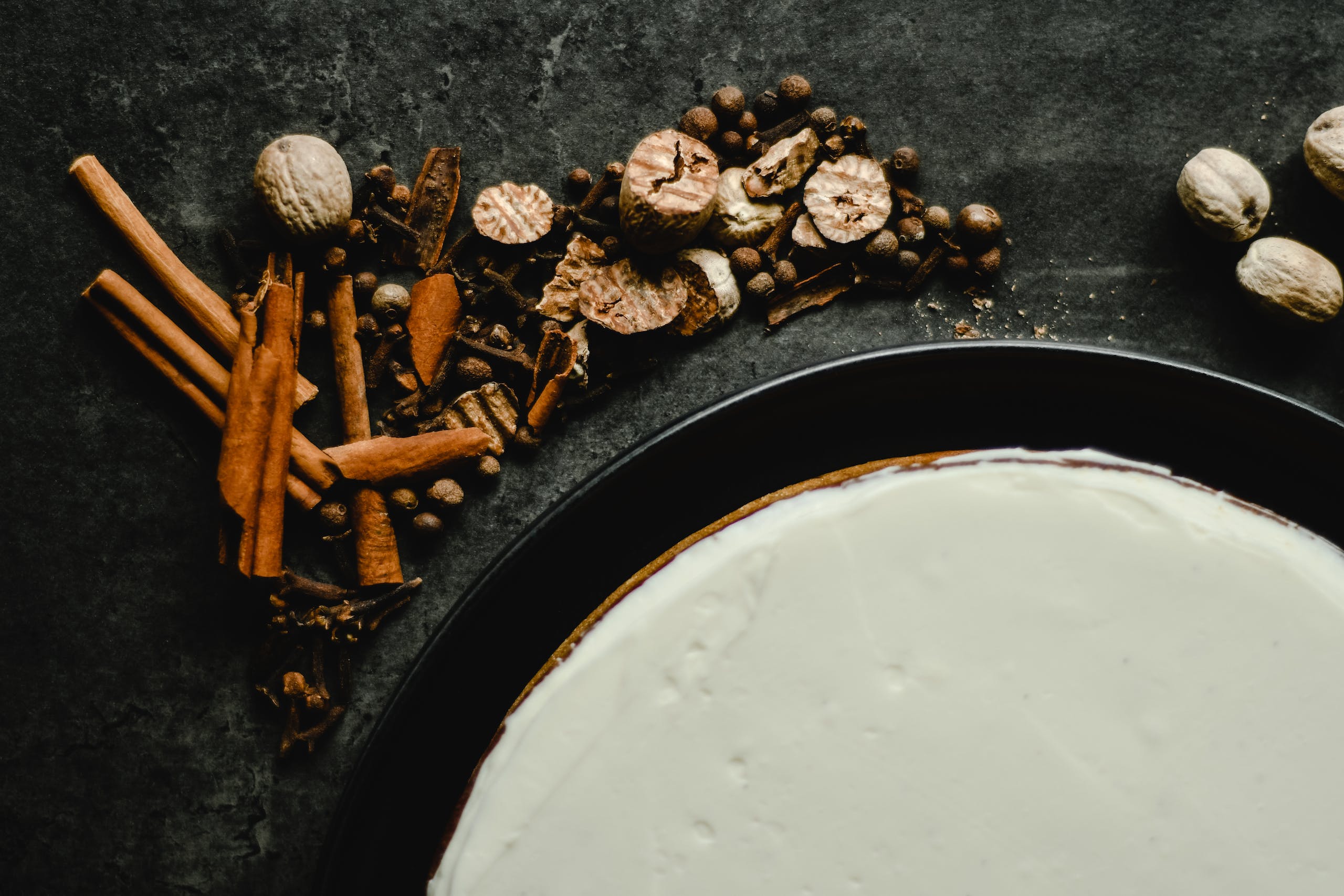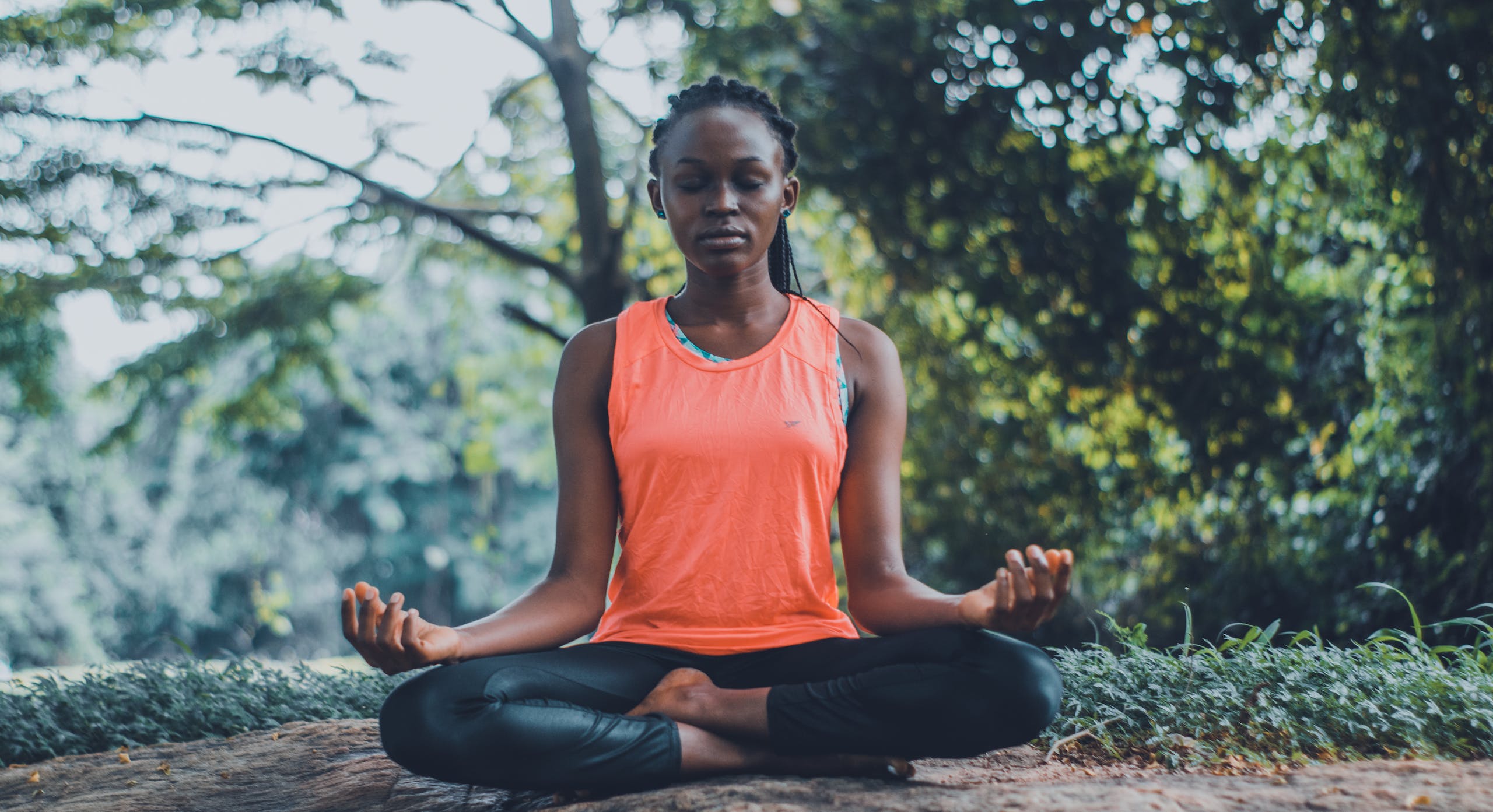The Effects Of Caffeine On Sleep: What You Need To Know
There are some affiliate links below, but they are all products I highly recommend. For more info, view my disclosure here.
Do you ever feel like you can’t get enough sleep, no matter how much you rest? It could be the caffeine in your diet.
Caffeine is a stimulant that’s found in coffee, tea, energy drinks, and even chocolate. While it’s often used to increase alertness, it can also have a negative impact on your sleep.
In this article, you’ll learn how caffeine affects your sleep, how much you should be drinking, and how to get better rest.
Read on to learn more about the effects of caffeine on your sleep.
Overview of Caffeine
With its ability to stimulate and increase alertness, caffeine can have a major impact on how well we rest, so understanding its impact is essential for a good night’s sleep.
Caffeine is a stimulant drug, naturally found in coffee, tea, and other plants. It works by blocking the effects of a neurotransmitter in the brain called adenosine, which helps to induce sleep. When adenosine is blocked, it causes the body to become more alert, thereby making it harder to fall asleep.
Caffeine is absorbed quickly by the body, typically within 15 minutes of consuming it. It has a half-life of 4-6 hours, meaning that it takes 4-6 hours for the body to process and eliminate half of the caffeine consumed. The effects of caffeine can last for up to 8 hours, making it important to limit caffeine intake in the afternoon and evening to ensure a good night’s sleep.
Although not everyone is affected by caffeine the same way, there are some general guidelines to follow. It’s recommended to avoid caffeine for six hours before bedtime to ensure optimal sleep. Additionally, limiting caffeine intake throughout the day is important. Consuming more than 400mg of caffeine in a day can lead to insomnia, anxiety, and jitteriness.
Understanding the effects of caffeine is essential to getting a good night’s sleep. Limiting caffeine intake in the afternoon and evening and avoiding it a few hours before bedtime can help ensure a good night’s rest.
How Caffeine Affects Sleep
If you’re a coffee-lover, you might be wondering how your beloved beverage can impact your slumber – and we’ve got the answer!
Caffeine can have a dramatic effect on sleep, as it is a stimulant and disrupts your body’s natural sleep cycle. Caffeine blocks the receptors in your brain that make you sleepy, pushing back the time it takes for you to fall asleep, and reducing the amount of REM sleep that you get. This can lead to fatigue and difficulty waking up the following morning.
Caffeine has a half-life of 6 hours, meaning if you drink a cup of coffee at 2 pm, by 8 pm, half of the caffeine is still in your body. It is recommended that adults don’t consume caffeine after 2 pm in order to minimize its impact on sleep.
If you’re someone who struggles with insomnia, it’s best to avoid caffeine altogether, or significantly reduce your caffeine intake. It’s also important to note that the amount of caffeine you consume can affect how it impacts your sleep. People who consume large amounts of caffeine are more likely to feel the effects than those who consume smaller amounts. Also, everyone metabolizes caffeine differently, so what may be a small amount for one person could be a large amount for another.
Caffeine can have an effect on sleep, and it’s important to be mindful of how much you consume and when you consume it. If you’re someone who has difficulty sleeping, it’s a good idea to limit your caffeine intake and avoid it after 2 pm. Doing so can help you get a more restful night’s sleep.
How Much Caffeine is Too Much?
Too much of anything can be a bad thing, and caffeine is no exception. Over-consumption of caffeine can interfere with your ability to get a good night’s sleep. It can also cause other issues like headaches and jitteriness.
The amount of caffeine that would be considered too much varies from person to person, as everyone’s tolerance for it is different. Generally, it is recommended that adults consume no more than 400 milligrams (mg) of caffeine per day. That’s about four or five cups of coffee, depending on how strong it is.
You should also be aware of other sources of caffeine such as tea, energy drinks, and chocolate. If you’re not sure how much caffeine you’re consuming, read the nutrition labels of the food and drinks you’re consuming.
It’s important to note that caffeine is a stimulant, so it can interfere with sleep even if consumed in moderate amounts. If you’re having trouble sleeping, try to avoid caffeine at least six hours before bedtime. It’s also a good idea to keep track of how much caffeine you’re consuming throughout the day and make sure you’re not consuming more than 400 mg.
For most people, it’s best to limit caffeine consumption and keep it to two or three cups of coffee per day. Doing so will help ensure that you’re getting enough rest and that your body is able to properly recover from the day’s activities. Paying attention to how much caffeine you’re consuming can help you get a better night’s sleep and prevent any unwanted side effects.
Caffeine Timing and Sleep
Managing your caffeine intake throughout the day can help ensure you get quality rest and avoid any unwanted consequences. When it comes to caffeine timing and sleep, it’s best to avoid caffeine after 2 pm. Drinking caffeine late in the day can disrupt your sleep, resulting in difficulty falling asleep, waking up frequently during the night, and not feeling refreshed after waking up.
Even if you think you’re immune to the effects of caffeine, it can still affect your sleep if you consume it within 6 hours of bedtime. Caffeine can stay in your system for up to 8 hours, so it’s best to cut off your caffeine intake by 2 pm to give your body enough time to metabolize it before bed.
If you’re still feeling the effects of caffeine late in the evening, try to switch to a decaffeinated alternative or to a calorie-free beverage. You can also try to get more sleep, as studies have shown that people who get more sleep have a decreased sensitivity to caffeine.
When it comes to caffeine timing and sleep, it’s important to pay attention to how much and when you’re consuming it. If you’re having difficulty getting good quality rest, try reducing your caffeine intake and limiting it to the morning. Doing so can help ensure you get the restful sleep you need.
Additionally, if you do decide to consume caffeine late in the day, make sure to give your body enough time to metabolize it before you go to bed.
Caffeine Alternatives
Break up your day with something other than a caffeinated beverage; try a fruity iced tea or a smoothie packed with energy-boosting nutrients for a refreshing pick-me-up. Non-caffeinated alternatives can provide the same energy and mental clarity as coffee or tea without the potential for sleep disruptions.
Herbal teas are a great choice for those looking for a pleasant and relaxing way to get an energy boost. Chai and green teas are especially beneficial as they contain antioxidants that help reduce inflammation.
If you’re looking for a more substantial drink, opt for a smoothie or juice. Many smoothies and juices contain natural ingredients like fruits, vegetables, and nuts that provide essential vitamins and minerals, as well as antioxidants. These drinks can also provide an energy boost by providing complex carbohydrates, protein, and healthy fats.
Yerba mate is a popular choice for those wanting a caffeine-free alternative. Yerba mate is a South American beverage made from the leaves of a plant in the holly family. It has a slightly bitter taste and is said to provide a boost of energy without the crash or jitters associated with coffee. Yerba mate has also been associated with increased alertness, improved mood, and better reaction time. Not to mention it is a rich source of antioxidants and vitamins.
Water is one of the most overlooked sources of energy. Staying hydrated helps keep your body functioning optimally, which can help you stay energized. Adding lemon slices or cucumber slices to your water can help make it more interesting and provide an even bigger energy boost.
Drinking water throughout the day is a simple and effective way to increase your energy levels and help you stay alert.
Being mindful of your caffeine intake can help you get the most out of your day while still getting the restful sleep you need. Taking breaks throughout the day and reaching for a non-caffeinated beverage can help you avoid the potential risks of caffeine and still keep your energy levels up.
Tips for Better Sleep
Getting enough restful sleep is essential for feeling energized and alert during the day, so it’s important to develop healthy sleep habits.
One of the best ways to ensure you get enough sleep is to create a consistent sleep schedule. Going to bed and waking up at the same time each day, even on weekends, will help regulate your body’s internal clock and allow you to get the most out of your sleep.
Additionally, it’s important to create a sleep-friendly environment in your bedroom. Make sure the temperature is comfortable, the room is dark and quiet, and there are no electronic devices present.
Another important factor in getting a good night’s sleep is to limit your caffeine consumption. Make sure you’re not drinking caffeine too close to bedtime as it can take up to 8 hours to be eliminated from your system. Additionally, try to avoid drinking any caffeinated beverages late in the day. If you do need an energy boost, try consuming a caffeinated beverage earlier in the day and switch to decaffeinated drinks in the evening.
Exercise is also an important part of getting good sleep. Regular exercise can help improve sleep quality and duration. However, it’s important to not exercise too close to bedtime, as it can make it harder to fall asleep. Instead, aim to exercise during the day, at least 3-4 hours before bed.
Finally, it’s important to keep stress levels in check. High levels of stress can interfere with your sleep and make it harder to fall asleep. To reduce stress, try to set aside time in the evening for relaxation. This could include activities such as reading, listening to music, or taking a warm bath.
Taking these steps can help ensure you get the restful sleep you need.
It’s clear that caffeine can have an effect on sleep. While it can give you a boost of energy and make you more alert, too much can disrupt your sleep cycles and make it harder to get the rest you need.
Try to limit your caffeine intake, particularly later in the day, and consider alternatives like herbal tea or decaf coffee.
With a few simple changes, you can get the energy you need without sacrificing a good night’s rest. So, don’t be afraid to cut back on caffeine and make sure you get enough sleep.
Your body will thank you!
